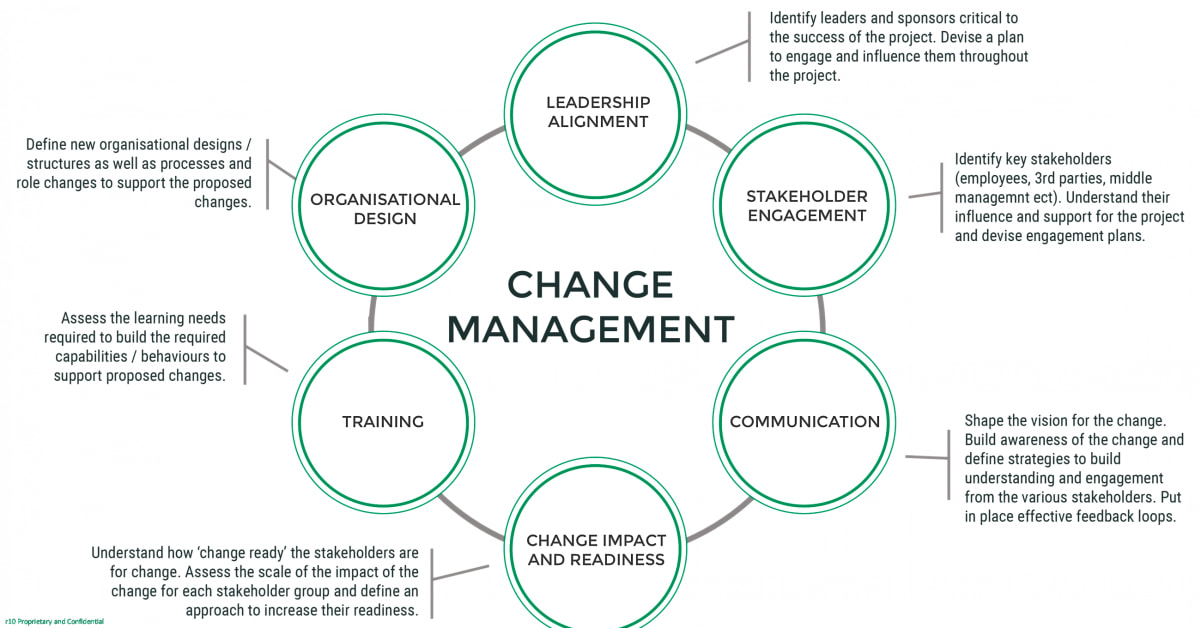Are you a small business owner who is looking to plan for the future? Succession planning is a crucial aspect of any business, especially for small businesses that rely heavily on the involvement of their owners. It involves identifying and preparing potential successors for key roles within the company to ensure a smooth transition in case of retirement, illness, or unforeseen circumstances.
Succession planning is an important part of small business consulting, as it helps owners create a roadmap for the future success of their business. It involves understanding the current state of the business, identifying key positions and potential successors, and creating a plan to develop and groom those successors to take on leadership roles.
In this article, we will delve into the world of succession planning and how it can benefit your small business. We will discuss the importance of having a solid succession plan in place, the steps involved in creating one, and how it ties into exit planning. Whether you are just starting your small business or have been running it for years, having a well-thought-out succession plan can set your business up for long-term success.
Succession planning is a crucial process for any organization, and it is particularly important for small businesses. It involves identifying and developing new leaders within the company to fill in the roles of current leaders when they leave, retire, or pass away. This process is essential for maintaining stability and ensuring the continued success of the business.
One of the key elements of effective succession planning is identifying potential candidates for leadership roles within the organization. This involves assessing current employees and their skills, experience, and potential for growth. It is important to have a clear understanding of the company’s goals and values, as well as the roles and responsibilities of each leadership position.
Another important aspect of succession planning is creating a plan for transitioning leadership. This involves determining the timeline for when current leaders will be stepping down and who will be taking their place. It is crucial to have a structured and organized plan in place to avoid disruptions and maintain stability within the company.
Effective succession planning also involves developing and training potential leaders. This can include providing them with opportunities for growth and development, as well as mentoring and coaching from current leaders. By investing in the development of future leaders, small businesses can ensure a smooth transition of leadership and maintain the success of the company.
So why is succession planning important for small businesses? Firstly, it helps to avoid disruptions in operations. When a leader suddenly leaves or retires without a plan in place, it can create chaos and uncertainty within the company. With a succession plan in place, there will be a designated person ready to step into the role, minimizing any disruptions.
Succession planning also helps to maintain stability within the company. When there is a clear plan for leadership transitions, employees feel more secure in their roles and are less likely to leave the company. This ensures that there is a consistent and stable workforce to keep the business running smoothly.
Additionally, succession planning is essential for the continued success of the business. When new leaders are properly trained and prepared, they can seamlessly take over the responsibilities of their predecessors and continue driving the company forward. This also ensures that the company’s values and goals remain intact even with changes in leadership.
Now that we understand the importance of succession planning for small businesses, let’s discuss how it can be implemented. Firstly, it is essential to have a clear understanding of the company’s goals and values, as well as the roles and responsibilities of each leadership position. This will help in identifying potential candidates and creating a structured plan for their development.
It is also important to involve current leaders in the succession planning process. They can provide valuable insights into the skills and potential of their team members, as well as offer mentoring and coaching to prepare them for future leadership roles.
In conclusion, succession planning is a crucial process for small businesses to ensure a smooth transition of leadership and maintain stability within the company. By identifying potential leaders, creating a structured plan for transitioning, and investing in their development, small businesses can ensure the continued success of their business for years to come.
The Importance of Succession Planning
Succession planning is a critical process for any small business owner to consider. It involves identifying and developing potential successors for key positions within the company, ensuring that the business can continue to thrive and grow even in the event of unexpected changes.
One of the main reasons why succession planning is important for small businesses is that it allows for a smooth transition of leadership. Without a proper plan in place, the sudden departure of a key employee or owner can cause chaos and disruption within the organization. This can lead to lost productivity, decreased morale, and potentially even financial setbacks.
Furthermore, succession planning helps to mitigate risk and ensure the long-term sustainability of the business. By identifying and grooming potential successors, a small business can avoid a leadership vacuum and continue to operate seamlessly. It also allows for the transfer of knowledge and expertise from one generation to the next, ensuring that the business can adapt and thrive in an ever-changing marketplace.
Finally, succession planning can also provide peace of mind for both the current owner and their potential successors. Knowing that there is a solid plan in place can alleviate any concerns about the future of the business, allowing everyone to focus on their roles and responsibilities without worrying about what may happen down the road.
Key Elements of Effective Succession Planning
Succession planning is a crucial process for any small business owner, as it ensures that the business can continue to thrive even after the owner’s departure. However, not all succession plans are created equal. To be truly effective, a succession plan must have certain key elements in place.
Clear goals and objectives: A successful succession plan starts with clearly defined goals and objectives. This includes determining what the business owner wants for the future of their business and what they hope to achieve through the succession process.
Identifying potential successors: One of the main goals of succession planning is to identify and develop potential successors. This involves identifying individuals within the company who have the skills, knowledge, and potential to take on leadership roles in the future.
Training and development: Along with identifying potential successors, it is important to provide them with the necessary training and development opportunities to prepare them for their future roles. This can include mentoring, job shadowing, and leadership training programs.
Communication and transparency: A successful succession plan also involves open communication and transparency between all parties involved. This means keeping employees informed about the succession process and addressing any concerns or questions they may have.
Regular reviews and updates: As a business evolves, so should its succession plan. It is important to regularly review and update the plan to ensure it remains relevant and effective.
Benefits of Succession Planning for Small Businesses
Succession planning is a vital process for any small business, as it involves identifying and developing internal employees to take on key leadership roles within the company. This not only helps to ensure a smooth transition when a current leader retires or moves on, but it also has several other benefits for the business.
1. Maintains Business Continuity
A well-developed succession plan ensures that there is always someone ready to step into a leadership role if needed. This helps to maintain business continuity and prevents any disruptions in operations that may occur if a key leader were to suddenly leave the company.
2. Encourages Employee Growth and Development
Succession planning involves identifying and grooming employees for leadership positions. This not only shows employees that their hard work and dedication is valued, but it also motivates them to continue growing and developing their skills. This can lead to increased productivity and engagement within the company.
3. Reduces Hiring Costs
Hiring and training new employees can be costly for small businesses. With succession planning, the company can promote from within, reducing the need to hire externally and saving on recruitment and training expenses.
4. Preserves Company Culture
When a new leader is brought in from outside the company, there is a risk of disrupting the existing company culture. With succession planning, the new leader has already been immersed in the company’s culture and values, ensuring a smoother transition and preserving the company’s identity.
Overall, succession planning can greatly benefit small businesses by ensuring continuity, promoting employee growth, reducing costs, and preserving company culture. It is an essential process for long-term success and should not be overlooked by small business owners.
Implementing Succession Planning in Small Businesses
Succession planning is a crucial aspect of any business, big or small. It involves identifying and developing potential future leaders within the company to ensure a smooth transition when key employees leave or retire. In a small business, where the owner often plays a significant role in day-to-day operations, succession planning is even more critical.
So, how can you implement succession planning in your small business? Here are some steps to get you started:
1. Identify key positions and potential successors: Begin by identifying the key roles in your company that would need to be filled if the current employee were to leave. Then, look at your current employees and assess their potential to take on those roles in the future. This will give you an idea of who could be potential successors and where there may be gaps that need to be filled.
2. Develop a training and development program: Once you have identified potential successors, it’s essential to provide them with the necessary training and development to prepare them for their future roles. This could include mentoring, job rotations, or even external training programs.
3. Communicate with employees: It’s crucial to involve your employees in the succession planning process. This will not only keep them informed but also make them feel valued and invested in the company’s future.
4. Have a contingency plan: In addition to grooming potential successors, it’s essential to have a backup plan in case someone unexpectedly leaves or retires. This could involve cross-training employees or having a pool of external candidates.
Succession planning may seem like a daunting task for a small business, but it is a crucial part of ensuring long-term success and sustainability. By following these steps and continually reviewing and updating your succession plan, you can ensure a smooth transition for your business when the time comes.
Succession planning is crucial for the long-term success of any small business. It ensures that the business can continue to thrive even when there are changes in leadership. By following the key elements of effective succession planning and understanding its benefits, you can create a plan that will help your small business grow and succeed in the future.
With proper succession planning, a small business can ensure a smooth transition of leadership, maintain continuity, and mitigate potential risks. It also allows for the development of talented employees who can step into key roles when needed. This not only benefits the business but also provides opportunities for growth and advancement for employees.
Effective succession planning involves identifying potential successors, creating a detailed plan for their development, and regularly reviewing and updating the plan as needed. It also requires open communication and collaboration between current leaders and potential successors to ensure a seamless transition. By prioritizing succession planning, small businesses can build a strong foundation for future success.
In conclusion, succession planning is an essential aspect of small business consulting and exit planning. It helps businesses prepare for any potential changes in leadership and ensures long-term success. By implementing effective succession planning, small business owners can secure the future of their company and foster growth and development for both the business and its employees. Don’t overlook the importance of succession planning in your small business – start planning today for a brighter tomorrow.





